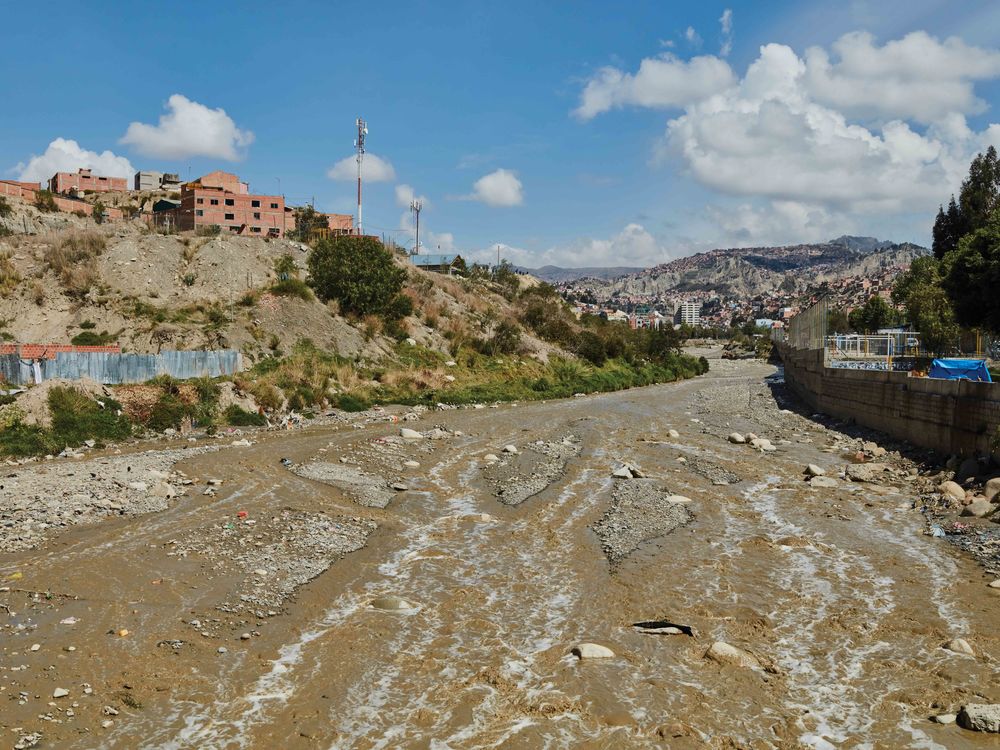

Photograph by Christina Holmes
High and dry
When the glaciers that fed La Paz, Bolivia, its water vanished, citizens woke to dry taps, civil unrest—and a Water General’s reign.
The city is high and dry after losing its glaciers
By Leslie Kaufman February 21, 2017
The early-morning sunshine, sharp and unfiltered in the high Andean altitude, flashes off the Water General’s sunglasses. He poses next to a 2,500-gallon tank that his troops placed behind this market of stalls in La Paz, Bolivia. The women who sell here—short, stout, and dressed in the multitiered skirts favored by many of the indigenous—line up with garlands of yellow flowers. The Water General bends so they may sprinkle petals on his head. A crowd of media, assigned to the event, duly take note.
Suddenly a man breaks through the crowd. He screams at the general and the Water Minister, Alexandra Moreira, standing at his side. “It is not enough. You are disrespecting the people!” the man yells. As the general’s troops drag the man out by his arms, he adds, “It’s the truth.” Moreira, in her skinny jeans and a navy-print blouse and suddenly looking far too young for such a weighty position, winces.
At nearly 12,000 feet in altitude, La Paz sits in a zone—the high tropics—suffering the effects of climate change quicker than the rest of us. The glaciers that once fed the city are in retreat; the seasonal rains that should replenish the reservoirs from November through February are increasingly unreliable. In early November, the federal government declared a state of emergency. Overnight, officials cut water to 94 of the city’s neighborhoods, leaving about half of its roughly 800,000 residents caught completely off-guard.
On television, the government promised to turn the taps back on in a day or so. But when the water did not return as promised, hundreds of people protested. They commandeered the cisternas, the tanker trucks brought in to distribute the dwindling water supplies street by street. In one instance, angry citizens questioned local water officials for several hours at a rowdy meeting, refusing to let them leave. That’s when the federal government sent in the Water General, aka Brig. General Mario Enrique Peinado Salas, to suppress unrest and enforce a rationing system.